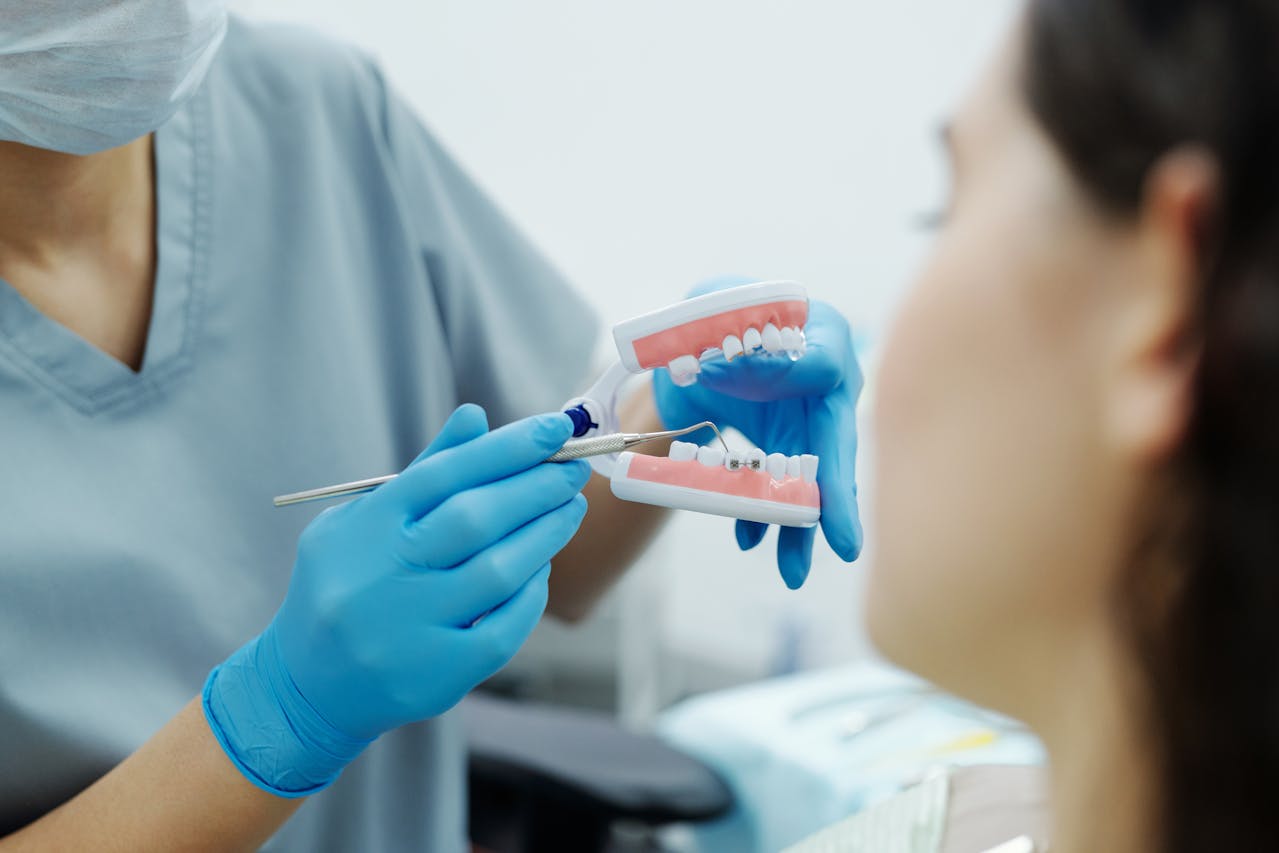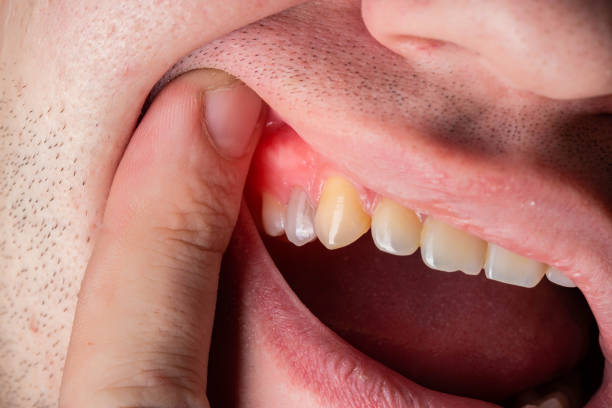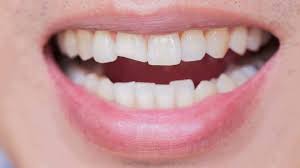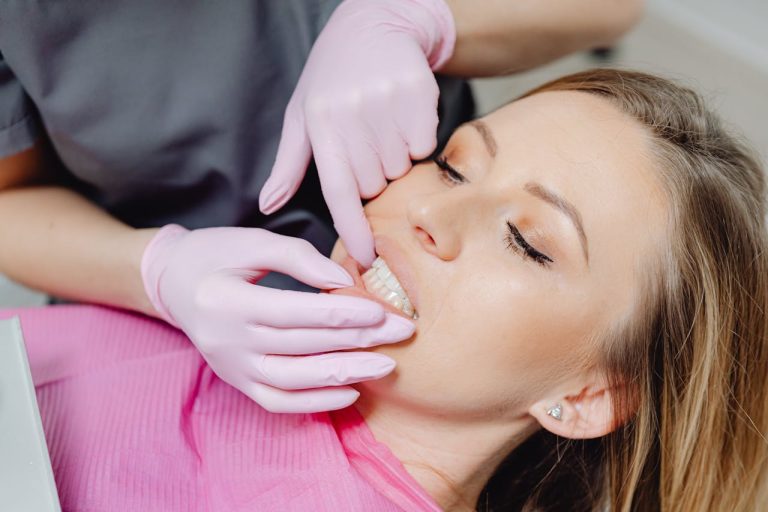Orthodontic treatment plays a crucial role in correcting misaligned teeth, improving oral function, and enhancing smiles. However, many patients undergoing orthodontic treatment with braces report experiencing gum swelling. So, can braces cause gum swelling? The short answer is yes, but understanding why it happens and how to manage it effectively is key to maintaining good periodontal health throughout your treatment journey.
What Are the Main Causes of Gum Swelling with Braces?
Gum swelling, also known as gingival inflammation or hyperplasia, can occur due to a range of factors, particularly in individuals wearing orthodontic appliances. Here are some common causes:
- Poor oral hygiene: Brackets and wires can trap food particles, making it difficult to clean effectively. This can lead to plaque buildup and bacterial growth.
- Bacterial plaque accumulation: A leading cause of gingivitis, the first stage of gum disease.
- Irritation from braces hardware: Wires and brackets may rub against the gums, leading to localised inflammation.
- Adjustment discomfort: After braces are tightened, gums may feel sore or appear puffy temporarily.
- Gingival hyperplasia: In some cases, the gums may overgrow due to chronic irritation or poor hygiene.
How Can You Identify If the Swelling Is Normal or a Concern?
While mild swelling is a common and often temporary side effect of orthodontic adjustments, it is essential to recognise when it might signal something more serious.
Comparison Table: Normal vs Concerning Gum Swelling
| Symptom | Normal (Temporary) | Concerning (Needs Attention) |
| Swelling | Mild, especially after tightening | Persistent or worsening over time |
| Pain level | Mild discomfort | Sharp pain or ongoing soreness |
| Bleeding | Minimal or none when brushing | Frequent, spontaneous, or excessive bleeding |
| Colour | Light pink or slightly red | Dark red, purple, or shiny appearance |
| Duration | 1 to 3 days | More than one week |
| Other symptoms | None | Pus, bad breath, loose teeth |
If your symptoms fall under the concerning column, professional assessment is recommended.
Why Does Oral Hygiene Become More Challenging with Braces?
Braces create multiple small areas where plaque and food particles can accumulate, especially around brackets, wires, and bands. This makes cleaning your teeth and gums significantly more challenging. As a result:
- Bacteria flourish in hard-to-reach areas
- Plaque leads to gingivitis
- Redness, swelling, and bleeding may occur
- Over time, untreated inflammation can lead to periodontitis
Regular hygiene routines become even more important with braces. Skipping steps or failing to adapt your technique to accommodate your braces can cause worsening gum conditions.
What Are the Most Effective Ways to Prevent and Manage Gum Swelling with Braces?
Improving your dental hygiene practices and using the right tools can make a significant difference. Here are some evidence-based recommendations:
Tools for Optimised Oral Care with Braces
- Orthodontic toothbrush: Designed with V-cut bristles for better bracket cleaning
- Interdental brushes: Reach areas around wires and between teeth
- Floss threaders: Help floss under wires
- Water flosser: Removes debris with pressurised water
- Antibacterial mouthwash (alcohol-free): Reduces bacteria and inflammation
- Orthodontic wax: Shields gums from sharp wire ends
Best Practices
- Brush twice daily, using small circular motions around brackets
- Floss at least once per day using a threader or water flosser
- Rinse with mouthwash to kill bacteria
- Schedule professional cleanings every 6 months (or more frequently if advised)
- Attend all orthodontic appointments for monitoring and adjustments
Which Oral Hygiene Mistakes Worsen Gum Inflammation?
To avoid complications, steer clear of these common mistakes:
- Brushing too aggressively or missing areas around brackets
- Skipping flossing due to difficulty
- Not using mouthwash
- Ignoring food debris stuck between wires
- Delaying dental check-ups
These habits can accelerate gingival overgrowth, increase inflammation, and compromise both orthodontic and gum health outcomes.
What Role Do Dental Professionals Play in Managing Swollen Gums?
Dentists and orthodontists can:
- Identify the root cause of inflammation
- Provide professional cleaning to remove hardened plaque (tartar)
- Recommend changes in oral care products
- Adjust braces to reduce soft tissue irritation
- Refer to a periodontist in cases of severe gum disease
Early intervention is critical to avoid complications such as receding gums or bone loss.
How Can M&M Dental Care Help If You’re Experiencing Gum Swelling?
At M&M Dental Care, we understand the challenges that come with orthodontic treatment—especially when it comes to your gum health. Our experienced team is equipped with the latest tools and training to ensure that you not only straighten your teeth but also maintain a healthy, inflammation-free smile throughout the process.
Whether you’re already wearing braces or just starting your journey, we offer comprehensive care that focuses on:
- Tailored oral hygiene education
- Preventive care and professional cleans
- Monitoring for early signs of gingivitis or hyperplasia
- Collaborative treatment with orthodontists when needed
Let us help you make your orthodontic journey smoother and more comfortable. Book an appointment today with M&M Dental Care to get expert support for your gum and dental health.
References
Frequently Asked Questions (FAQs)
- Is it normal for gums to swell after getting braces? Yes, mild gum swelling is normal after braces are applied or adjusted. This typically subsides within a few days if proper oral hygiene is maintained.
- Can poor brushing lead to swollen gums during orthodontic treatment? Absolutely. Inadequate brushing and flossing can lead to plaque build-up, which causes inflammation and gum disease.
- Should I be worried if my gums bleed while wearing braces? Bleeding gums may indicate gingivitis, especially if it’s persistent. It’s important to consult your Dentist Marsden Park or orthodontist for assessment.
- How can I prevent gum swelling while wearing braces? Use an orthodontic toothbrush, floss daily with a threader or water flosser, rinse with antibacterial mouthwash, and maintain regular dental check-ups.
- What is gingival hyperplasia, and can braces cause it? Gingival hyperplasia refers to gum overgrowth, often caused by chronic irritation from braces or poor oral hygiene. It can usually be managed with improved care.
- When should I see a dentist for swollen gums with braces? If swelling persists beyond a week, becomes painful, bleeds excessively, or shows signs of infection (such as pus), it’s time to seek professional help.





